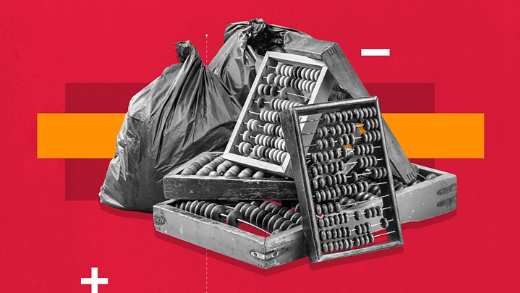We speak to the political scientist about the long-term themes affecting emerging markets, from the trade war to technological automation to climate change.
Emerging markets are facing a new era of uncertainty. The US-China trade dispute has disrupted supply chains and forced smaller developing economies to pick sides. Domestically, EM governments are struggling for legitimacy. The threats of labour-market automation and extreme climate change loom large on the horizon.
Ian Bremmer is better placed than most to analyse the impact of these seismic trends. As president and founder of Eurasia Group, a political risk research and consulting firm, he created the first global political risk index. Bremmer’s definition of emerging markets – “those countries where politics matters at least as much as economics for market outcomes” – is widely accepted. And long before the rise of Donald Trump, his concept of a ‘G-Zero’ world gained currency as a way of describing the power vacuum left after America’s retreat from global leadership.
Bremmer’s ideas have found a wider audience through his columns for Time magazine and appearances on television. His most recent book, Us vs. Them, surveys the political backlash against globalisation. Recounting his own rise from the working-class housing projects of Massachusetts, Bremmer observes that social mobility is increasingly difficult in an ever more stratified society: “In my old neighbourhood, people are angry…they no longer believe that hard work and education are enough.” As he points out, such frustration is increasingly evident in emerging economies, too – despite the opportunities globalisation has brought to the developing world in recent decades.
In this Q&A, Bremmer discusses his outlook for the trade war, the future of geopolitics in a G-Zero world, and how EM governments are looking to China’s centralised model as they seek greater control over unwieldy economies and restive populations.
You define emerging markets as those countries where politics has more influence on market outcomes. Has the rise of populist politics in the US and Western Europe complicated this distinction between EM and DM?
It certainly makes politics matter more in the developed world. We are seeing, for example, tariffs coming out of the US against China. Tariffs against Mexico might get enacted soon. There’s no doubt that what’s emanating from Washington, what’s emanating from Rome, what’s emanating from London with the Brexit vote, is more significant for investments than heretofore.
But it’s clear that, if you leave aside his tweets and public statements, Donald Trump’s actual policies are not all that different from those of traditional Republicans: look at the regulatory rollback, look at selective enforcement, look at the judicial and Fed appointments. So I do think that is overplayed a bit. While political risk has become more important in the macro environment, because of the geopolitical recession we’re experiencing and the unwind of the US-led global order, I think a basic definition that says emerging markets are countries where politics matter more domestically is still quite a functional definition.
How do you expect the US-China trade war to play out?
Both leaders want to avoid a significant escalation of the present tit-for-tat on tariffs. That’s an incentive, if not to get a comprehensive deal done, then at least for some kind of ceasefire. But that has gotten much harder as the sides have dug in. There has not been any name-calling directly between Trump and Xi Jinping, which is good – the two individual leaders still have a functional relationship – but the likelihood of getting a breakthrough deal is going down, in part because the US economy is doing so well and Trump thinks he can get away with it.
But let me be clear that irrespective of whether there is a deal or not, there is no trust between these two countries. The lesson that has been taken away by the Chinese is never to be so vulnerable to the US again. That means: make sure you have political leverage over your supply chain, for production of semiconductors, for example. America making it increasingly difficult for Huawei to function and roll out 5G internationally, that’s a big deal as well.
So do you see a longer-term conflict between the two powers on the technology front?
I do think we are seeing the beginning of a Cold War in technology and a Cold War in AI, regardless of whether we are able to come to some kind of truce on trade. For basic trade, the Americans and Chinese still very much need each other. We don’t need as much Chinese labour as we used to, but we still want to buy a lot of goods in China as they are cheaper, and China still wants to sell a lot of goods to the United States. The economies are still very interlinked in that regard. Whereas on technology, core US tech companies like Amazon, Google and Facebook don’t actually do much business in China, and China is developing alternatives. Look at Tencent, look at Alibaba: these are not companies that are doing big business in the US but they are dominant in China. So the fact that in technology you don’t have the interlinkages you do in trade tells you a lot about where those relationships are going.
You wrote last year about EM vulnerability to rising US interest rates. Now that Fed rate increases seem on hold (or possibly set to go into reverse), has this risk diminished?
With the Fed’s dovish shift, emerging markets are less vulnerable to higher US rates and resulting outflows of capital, but they still face external pressures. First is a slowing China; second is that they remain bound to global growth, which is slowing. And even though a more dovish Fed provides a reprieve now, EM economic growth and financial market performance are still very much tied to global financial conditions, making it more difficult for many of them to use fiscal and monetary policy to smooth the economic cycle.
China’s demand for raw materials is likely to fall as it transitions to a more consumer-led growth model. How could this affect other emerging markets?
Chinese demand poses a major concern for future growth across emerging markets. A China that imports fewer commodities and exports fewer manufactured goods calls into question the basic EM growth model. Countries among the most exposed include Brazil, Argentina, South Africa and Indonesia. The challenge for emerging markets will be to reform in the face of a slowing China – to raise domestic investment, to increase consumption, to avoid credit-driven bubbles, and to find alternatives to natural resource exports to China. India is ahead here under Modi, despite the many challenges to his reform agenda.
There are two offsets, both most relevant for emerging Asia. The first is that China’s Belt and Road Initiative is increasing resources for investment in local infrastructure, which could help facilitate intra-regional trade that’s less reliant on Chinese demand alone. The second comes from increasing consumption in China – for those emerging markets that can rise higher on the value chain and export more consumer goods into China, that gives them a bigger market to sell to.
You coined the concept of a ‘G-Zero’ world to describe the decline of Western influence. What are the implications of the G-Zero world for smaller emerging economies?
In the previous order you had US-led global institutions and that form of globalisation created more efficiency in the global economy. I don’t believe a G-Zero world means the US is in decline, but it does mean its global influence is in decline. There isn’t anything to replace it, so there will not be a global leader. There are a lot of leaders, but those leaders are increasingly dominant in their own backyard – Russia is dominant in its increasingly small sphere of influence, the Chinese are increasingly dominant in Asia, the US remains dominant across most of the Western hemisphere. In the Middle East, no one is dominant; there are a bunch of countries that want to have more sway and they all hate each other. That’s causing a lot of conflict.
I think it is going to be harder for smaller emerging markets. In Asia you have all of these comparatively small countries that have strong military relations with the US and strong economic relations with China, and they want to be able to do both. I think it will be harder to do both over time. It’s going to become harder to hedge, it will be harder to be aligned with everyone and to be neutral in a G-Zero world. Increasingly, smaller countries will have to find a way to navigate a world in which there are a bunch of leaders that are strong in different ways.
Rather than a ‘fourth industrial revolution’, you’ve spoken about a ‘post-industrial’ revolution in which automation leaves millions of people out of work. Which economies will be most vulnerable to this?
[Most vulnerable will be] those countries that have done best in terms of labour-led consumption, labour-led economic growth, and also the emerging markets that have political systems that are seen as less legitimate. Automation undermines the social contract and makes the emerging middle classes suddenly feel more vulnerable.
Those things play out in different ways in different countries. I’m less worried about India, because Indian labour is still very cheap, and it is very far down the scale in terms of building its infrastructure, so it has a lot of growth it can have before it is disintermediated by automation. Countries like Mexico, Brazil and South Africa are more vulnerable. And you also see in those places the growth of populist movements, which is making it hard for a political centre to congeal and do long-term strategic planning and investing to change the social contract.
How does the “us vs. them” dynamic you see in emerging markets compare with the backlash against globalisation we are seeing in developed economies?
People feel disenfranchised, they’re angry, they feel like the system is corrupt and the gatekeepers are corrupt and not working for them, and they are increasingly being disrupted by technology. Now, these are countries that are generally pro-free trade, because their middle classes have benefited from it. If you go to Mexico, Andrés Manuel López Obrador is strongly left-wing, even reactionary in some ways, but he is very pro-NAFTA and pro-USMCA, because the Mexican middle- and working-class grew on the back of that [trade]. But technology is an increasing threat to those middle classes and even the working classes, and that will make it harder for these countries to be governed effectively.
Climate change will affect all of us, but emerging markets look particularly vulnerable. To return to the G-Zero concept, could a lack of global cooperation hamper efforts to tackle climate change on an international level?
Quite clearly. The US has pulled out of the Paris climate accord. Alexandria Orcasio Cortez is talking about a Green New Deal, but of course the Chinese are responsible for two times as much emissions as the US. What you would need is not a Green New Deal but a Green Marshall Plan: as China and India are doing the lion’s share of the emitting, but don’t necessarily have the capabilities to deal with the issue alone, you need the US and other wealthy countries to work with them to try to address this problem. That gets much harder in a G-Zero world.
The last major crises we had in the world, 9/11 and the 2008 financial crisis, were marked dramatically by how America and the world came together to respond to them. Think of the coalition of the willing in Afghanistan, dozens of countries were involved, even the Russians. Think about the way the G20 functioned in 2008-’09, all the allies together, even the Chinese, trying to make sure we avoided a great depression. Climate change is of an even bigger scale than those challenges, but we have nowhere near the level of international consensus or cohesion in the ability to respond and be resilient. Climate change hitting in a G-Zero world is unfortunate.
You’ve drawn on the sci-fi author William Gibson’s idea that ‘the future is here, it’s just not evenly distributed’. Is there an emerging economy that points to the future for EM – whether it’s China’s state-led capitalist model or India’s chaotic strongman democracy?
The Chinese are getting stronger in part because technology allows them greater control: it’s no longer the Great Firewall, it’s Social Credit, it’s AI, its surveillance, and there are a lot of emerging markets that see that kind of control as attractive. I think Narendra Modi in India definitely sees the Aadhaar universal ID system as a way of allowing more control: enabling a more efficient allocation of resources, the building of infrastructure, getting money where it needs to go, and avoiding messy democracy. If Modi could be less of a democrat to achieve more growth he’d be all over that. A lot of his supporters would agree.
I don’t believe you can make an authoritarian regime in India, it’s too decentralised and most political parties wouldn’t agree with Modi and the BJP on this; the culture is not there. But [globally] are we moving in that direction? Twenty or thirty years ago, everyone thought the future would be The End of History, with authoritarian regimes being undermined by globalisation, undermined by the technology revolution and communications. Today you can no longer say that; it’s harder to make the argument that the arc of history bends towards liberal democracy. Increasingly, some countries will find that a Chinese-style technology-empowered state-capitalist model will be more attractive to them.

















